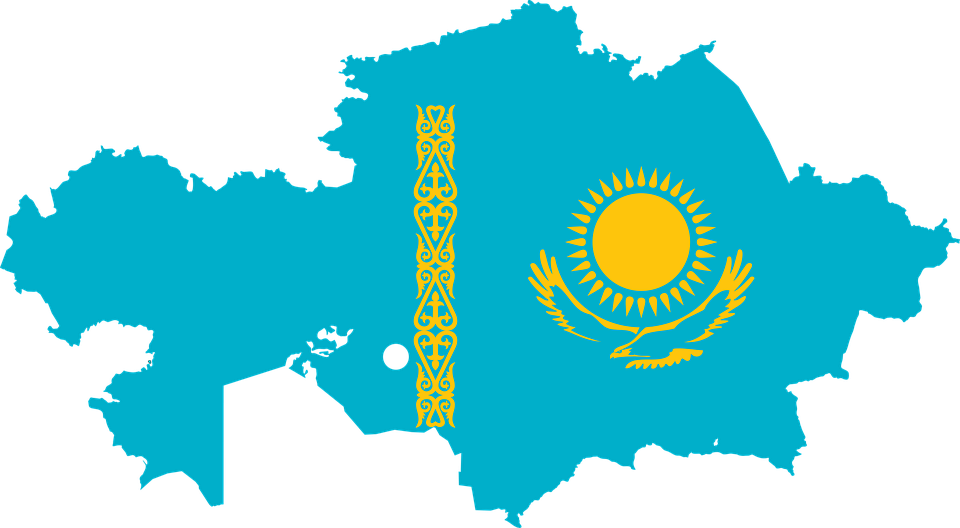Last September, for the first time in almost three years, Chinese President Xi Jinping traveled abroad. He chose to visit Kazakhstan, Uzbekistan, and attend the annual Shanghai Cooperation Organization summit where participant countries discussed regional security and development issues. Xi’s arrival stoked world media stories linking the trip’s significance to progress on China’s Belt and Road Initiative (BRI). Nine years earlier Xi had chosen Kazakhstan’s capital of Nursultan to announce the start of the BRI. There was a reason he picked a Middle Corridor country. China’s foreign policy leadership is strategic in its thinking and long-term in its approach.
Central Asia is a group of neighboring states that sit strategically between China and Europe. Using its trade routes enables China to export to Europe and bypass Russia. Kazakhstan is “ground zero,” according to one military analyst who called the region a potential flashpoint if the region leans to heavily in either China or Russia’s direction. Kazakhstan is performing a finely-tuned balancing act. It is an independent state formerly under Soviet control. Today the country supplies minerals, gas, oil, and metals to China and transships goods from China to Europe. It is a misconception, however, to simply assume the nation is now under China’s influence.
The country recently reached an agreement to export oil to Germany. Biz Media reports that after a couple of months delay KazTransOil delivered 20,000 ton of Kazakhstani oil in its first shipment. Although less than the 300,000 originally planned, the deal is significant. To enable this supply, Kazakhstan came to an agreement with Transneft, a Russian energy company. Flowing through the 2,500-mile long Druzhba pipeline, the Kazakhstani oil traveled through Russia, Belarus, and Poland before arriving in Germany, according to Nurbek Bekmurzaev’s Jamestown Foundation report.
One unknown since the deal was reached last December is whether Kazakhstan will now play a larger and more independent role in the European energy market. Kursiv Media earlier this year reported that the country’s oil exports to Germany in 2023 could reach almost 7 million tons a year. Russia will play an outsized role in the sale since it could decide to halt shipments through its pipeline to Germany. Putin still may terminate the agreement to punish Germany if it continues to support Ukraine’s war effort. Kazakhstani oil remains Germany’s cheapest solution to its energy needs.
Kazakhstan wants to sell the crude oil, which is similar in composition to what Germany has previously purchased. Officials in Nursultan recognize that its particular blend of crude saves Germany’s Schwedt refinery money as it can avoid costly adjustments to the refining process and the pipeline location is convenient. To ensure the integrity of the supply chain Nursultan government officials are carefully balancing Russian concerns over Germany’s support of the Ukraine war effort with its need for capital to develop the country. Analysts suggest the delay of the first shipment was due to an internal political balancing act by officials in Nursultan. “Small technical errors” were used as an excuse before the shipment was reduced in size to appease Russian concerns.
“Thus, with only a couple days left until the end of the first fiscal quarter, the modest amount of 20,000 tons exported instead of the projected 300,000 has cast doubt on the hopes that Kazakhstan could effectively rescue Germany and the rest of Europe in an energy crunch,” says Bekmurzaev. Kazakh officials have not forgotten that last year Russia shut down the Caspian Pipeline Consortium on several occasions, stopping its oil from reaching Europe.
Moscow lost valuable transit fees in 2022 and may not be in a position to lose them again this year. Nursultan officials acknowledge the country may not be able to fully supply all of Europe as its doesn’t produce enough oil. They are hoping the reduced supply of what they can ship will be more acceptable to Moscow. Kazakhstan’s President Kassym-Jomart Tokayev recognizes that Putin needs the cash revenue from the oil transiting Russia for its war effort. “Russia will retain some leverage over Germany by keeping it hooked on oil imports arriving via a Russian-controlled pipeline. Thus, while the oil itself will arrive from Kazakhstan, Germany will remain dependent on Russia at some level for supporting the exports,” says Bekmurzaev. He adds that keeping the Druzhba pipeline operational leaves the door open for renewed oil exports from Russia in the future.
China is the dominant partner in its relationship with Russia. When Putin went to war in Ukraine Beijing immediately filled some of the gaps left in Central Asia. Although BRI development projects have helped the region, Beijing has not been able to simply replace Moscow’s influence as suggested by some Western leaders. The situation is more complex. China and Russia, like NATO Member states, work closely together on some issues while disagreeing on others. The Middle Corridor is a complicated environment in which the Central Asian states play off the great powers to achieve their own end goals. Kazakhstan is using the geopolitical environment and the war in Ukraine as an opportunity to play a key role in the European energy market while also making sure to appease China’s leadership who come with regional aspirations and BRI money to buy their way into the transit corridor.
Daria Novak served in the U.S. State Dept.
Illustration: Pixabay
